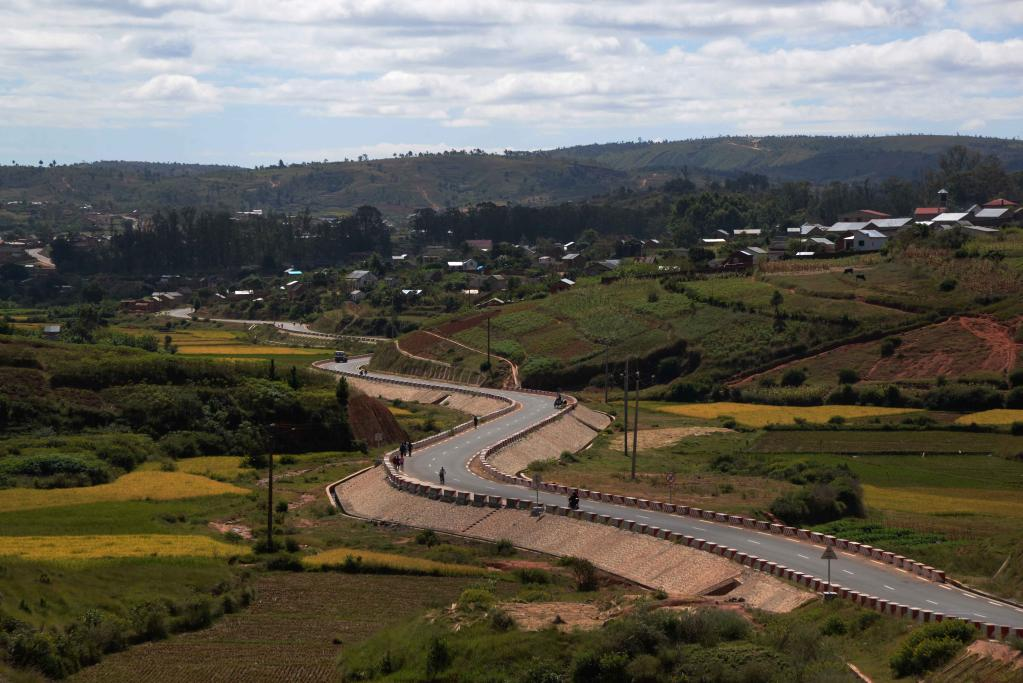
Photo taken on April 29, 2022 shows the "egg road" situated to the north of Antananarivo, the Malagasy capital. (Photo by Sitraka Rajaonarison/Xinhua)
ANTANANARIVO, May 27 (Xinhua) -- In the rural commune of Antanetibe-Mahazaza, 50 km north of Antananarivo, the Malagasy capital, Anja, 29, supported by his wife Seheno, has been investing in the poultry sector for five years. Their farm now includes 40,000 hens, which lay tens of thousands of eggs per week sold to the capital's egg market.
This poultry farmer has doubled the size of his business since he started five years ago. He has built a new shed that can accommodate 10,000 new laying hens.
"The Chinese government has given us a wonderful gift (...) and we are very grateful," says Anja, confident in the prospects of his farm.
This "wonderful gift" in his words is a 19 km road called the "egg road." This secondary road was renovated between August 2018 and January 2022 by the Zhongmei Construction Group as part of China's proposed Belt and Road Initiative (BRI).
Antanetibe-Mahazaza is a mega "egg village." Like Anja, between 200 and 250 small and large breeders are involved in poultry farming. According to Firmin Rakotonomenjanahary, head of Antanetibe-Mahazaza, the commune's current production represents 30 percent to 40 percent of the total national production. "Our eggs go all over Madagascar. Most of them go to Antananarivo," he says.
The official recalls that before the Chinese renovated the road, local poultry farmers used to complain about egg breakage during delivery. "When there was mud during the rainy season, it was a pain to get the eggs everywhere," he says.
"At the time, 10 percent to 20 percent of the eggs were broken (...) because of the state of the road," recalls Anja, adding that he would travel the 50 km from his village to the capital for three to four hours. He and his family had to leave at 1 a.m. to ensure that the eggs arrived on the shelves in Antananarivo by 5 a.m.
Wu Yong, deputy executive director of the "Egg Road" project and general manager of Zhongmei's Madagascar office, noted that after the renovation was completed, this secondary road was transformed into a smooth and wider asphalt road. The landlocked rural commune of Antanetibe-Mahazaza is now directly connected to the national road N4.
"The construction of this road has really changed our lives," says Anja, who now leaves his house with his wife at around 4 a.m. to deliver the eggs. "Nowadays, the percentage of broken eggs is very low. There is not even any breakage anymore if you are more careful on the way and if you arrange your load well," he explains.
According to Rakotonomenjanahary, the average daily production of eggs in his commune varies between 300,000 and 400,000, compared to 150,000 before the road was renovated. He added that the local government earned 19 million Malagasy ariarys (about 4,800 U.S. dollars) in taxes from the local sale of eggs in 2021. It expects to earn 30 million ariarys this year.
Anja says he has seen the gradual development of his village. "We have gained several benefits from the construction of this road. It has brought several developments. If you walk about the market here, you can find everything already. It's not like before when you wanted to buy something, you had to go to Mahitsy."
"Before, when it rained, the inhabitants were not at all enthusiastic about going out. But now, everyone goes out. And every weekend, things start to move a bit in the commune, because there are animations from Friday evening to Sunday. There is an influx of people who come here," says the official, who intends to build a large egg market in his village to attract consumers to the commune and save the poultry farmers money on transport costs.
Antanetibe-Mahazaza not only produces eggs, according to the official. It also sells 1,000 liters of milk per day, 350 tonnes of large onions and about 20 tonnes of garlic per season.
"We would like to thank the Chinese government and, above all, the Chinese people who have given us a huge amount of money to build this road," he says.
Red and white markers and milestones now line both sides of the paved road that winds through the green hills and rice fields of Madagascar's central plateau.
"There are many people who walk here only to see the road, because people say it is the most beautiful road in Madagascar, especially in the commune," says the official. "It is also the pride of the Malagasy people." ■
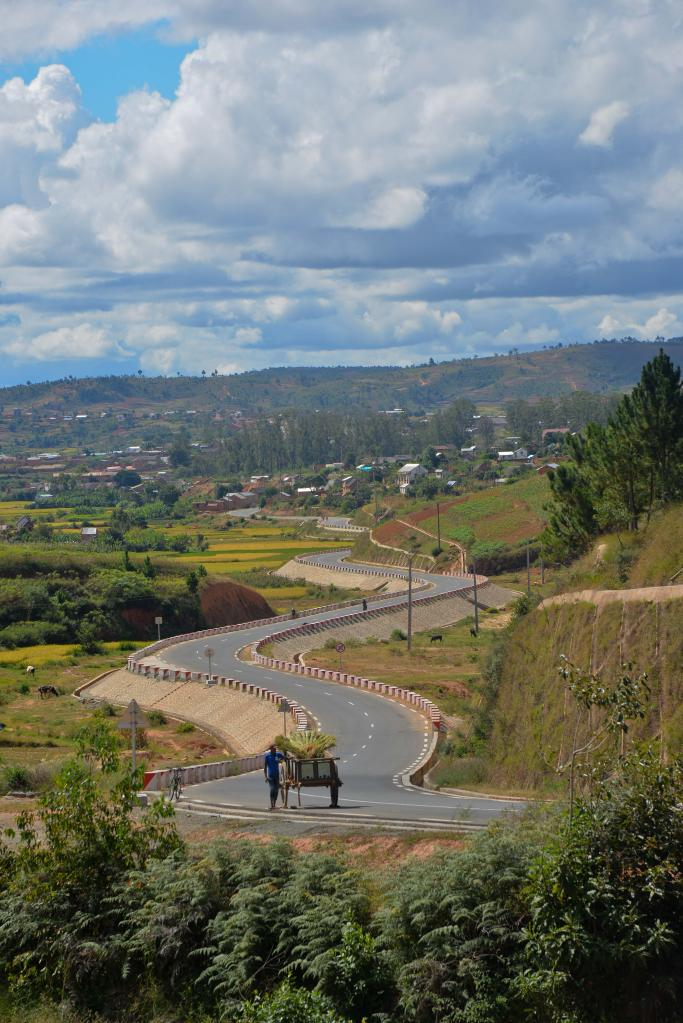
Photo taken on May 3, 2022 shows the "egg road" situated to the north of Antananarivo, the Malagasy capital. (Photo by Sitraka Rajaonarison/Xinhua)
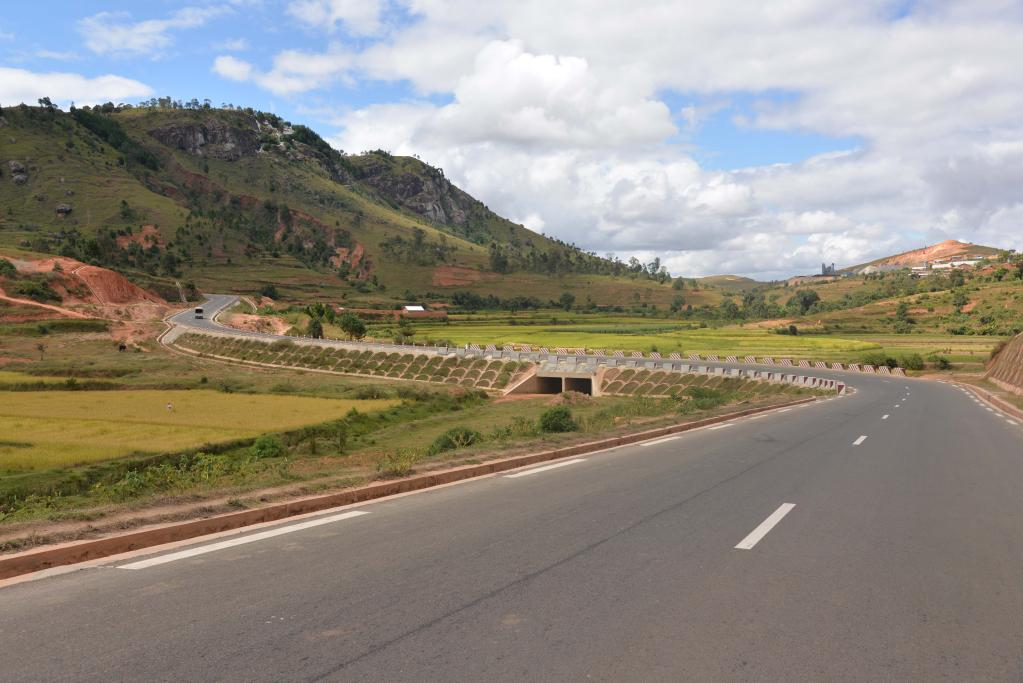
Photo taken on May 3, 2022 shows the "egg road" situated to the north of Antananarivo, the Malagasy capital. (Photo by Sitraka Rajaonarison/Xinhua)
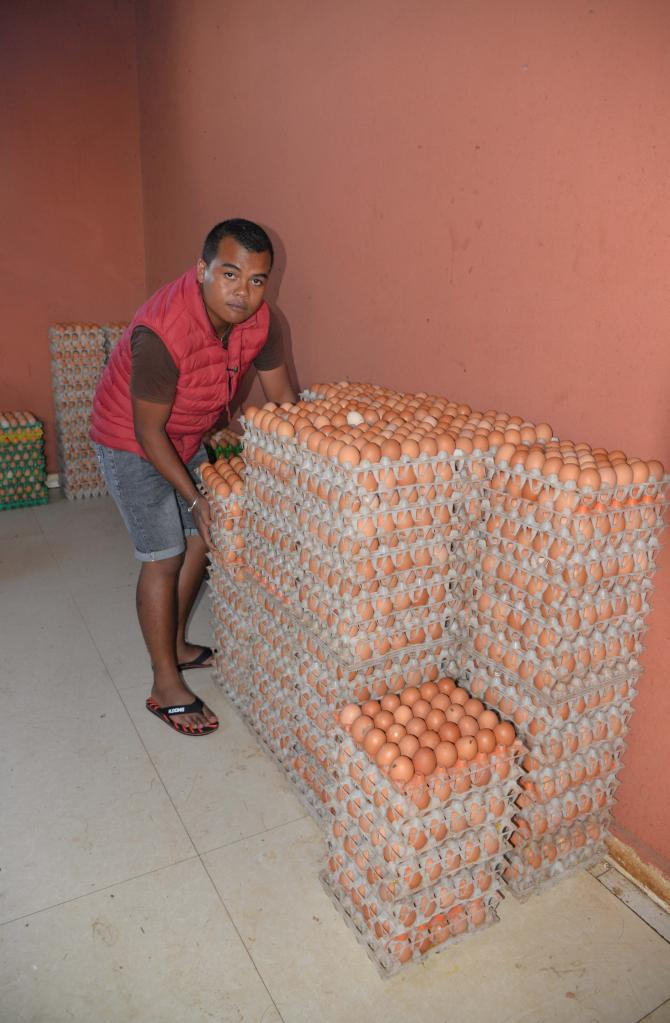
Anja, a poultry farmer, transports eggs on his farm in the rural commune of Antanetibe-Mahazaza, 50 km north of Antananarivo, the Malagasy capital, May 3, 2022. (Photo by Sitraka Rajaonarison/Xinhua)
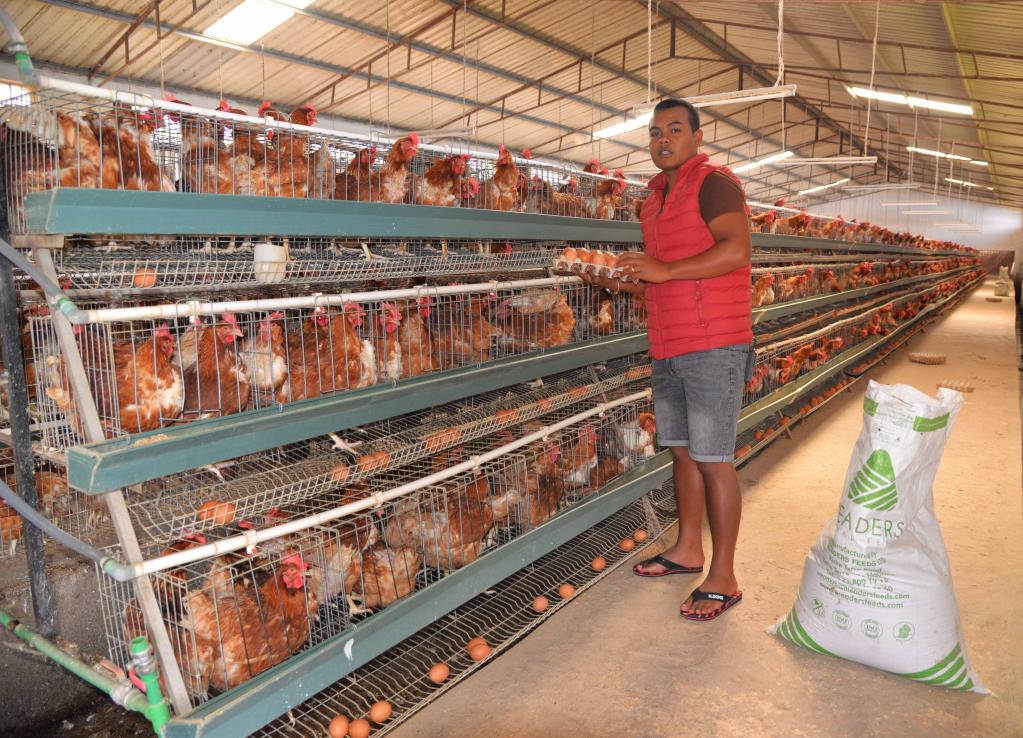
Anja, a poultry farmer, collects eggs on his farm in the rural commune of Antanetibe-Mahazaza, 50 km north of Antananarivo, the Malagasy capital, May 3, 2022. (Photo by Sitraka Rajaonarison/Xinhua)
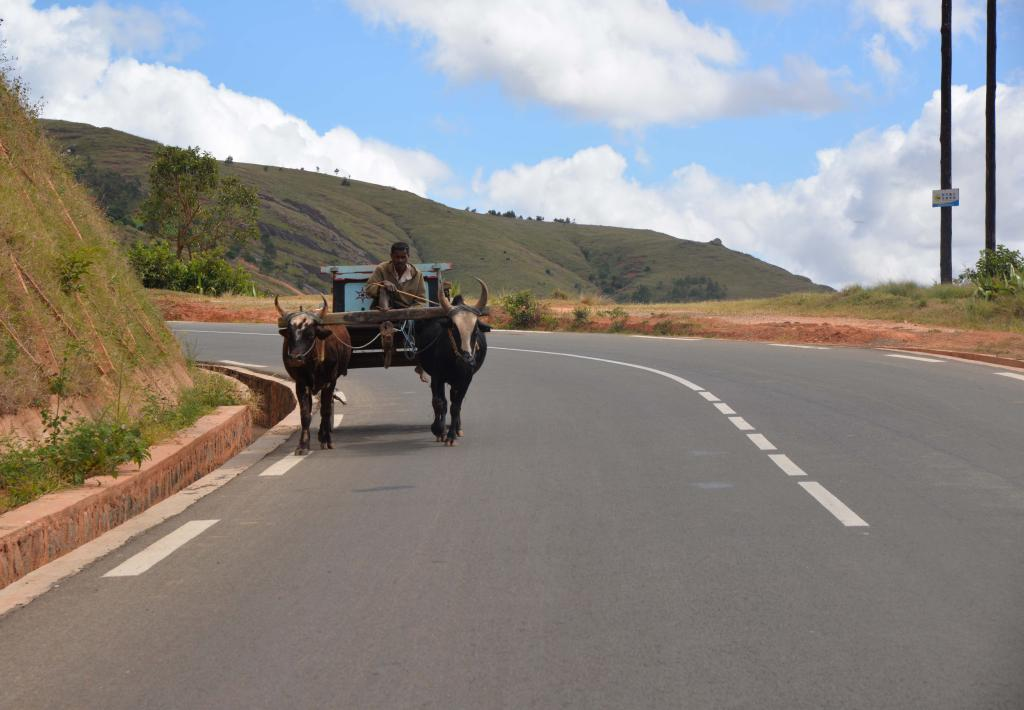
Photo taken on May 3, 2022 shows the "egg road" situated to the north of Antananarivo, the Malagasy capital. (Photo by Sitraka Rajaonarison/Xinhua)



